Rachel Dyal no longer cared what happened to her, or even if she ended up in the hospital, as long as she didn’t have to get taped.
Dyal, a 27-year-old Army first lieutenant, came to that realization in September 2019 after she failed a tape test designed to capture body measurements in order to calculate body fat. She was nearing the end of the Army’s Graduate Program in Nutrition through Baylor University that would culminate with a master’s degree in nutrition. A tape test was the only thing standing in her way.
It wasn’t the first time she’d failed the test. In October 2016, before she entered the program, she went to a recruiter’s office to get more information about the Army. Not knowing much about the service, she showed up to the recruitment office in a business suit and had “no concept about height/weight” requirements, she said.
The Army’s height and weight requirements are laid out in Army Regulation 600-9, the guidance for the Army Body Composition Program, which dictates how much a soldier should weigh depending on their gender, height, and age. If a soldier doesn’t meet the standard on that body mass index (BMI) table, they have different parts of their body measured as part of the tape test, to determine their body fat percentage — though experts say the scale, created in the 19th century, is outdated and perhaps based on pseudoscience.
That day in the recruiter’s office, Dyal was told she didn’t meet the required weight standard, so the recruiter brought in a female soldier to take measurements of Dyal’s neck, waist, and hips. She doesn’t recall what her body fat percentage was at that point, but she hadn’t met the standard.
At the time, she was a full-time student with a full-time job, and she worried there wouldn’t be enough time to exercise and drop weight ahead of being taped again.
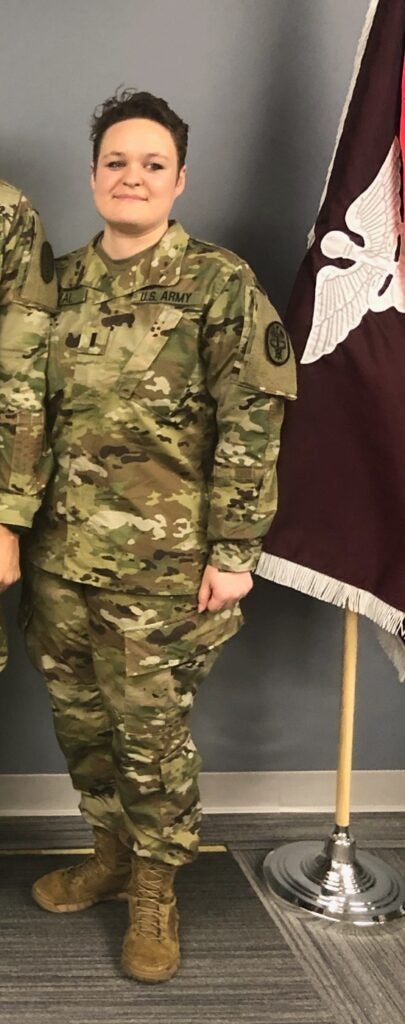
So she started restricting her diet. She was a nutrition student, Dyal reasoned; while she knew what she was doing wasn’t necessarily healthy, she figured she could handle it. And besides, she anticipated strict dieting for only a short period of time to drop weight and get into the program. Yet over the next year, she become “hyper conscious” of the food she ate, hungry “most of the time,” and only allowed herself to eat certain foods for every meal.
By January 2018, Dyal had completed the Army’s basic officer leader course and was starting the master’s program in nutrition. That was when the pressure really began, she said, recalling an overwhelming stigma over Army dieticians needing to be taped.
Dyal exhibited textbook signs of an eating disorder — which can lead to muscle weakness, low hormone levels, hair loss, or even kidney failure — and it was only getting worse: The food she ate or didn’t eat became the focus of every thought, every day. She avoided going out with friends on the weekends for drinks or dinner, or she’d plan what she was going to order days in advance. She felt guilty constantly — even if she ordered what she’d planned — and would restrict her diet even more afterwards to make up for it. It was a “miracle” she passed her classes in the program, she said, because all she was thinking about was food, her body size, and her weight.
Once, a friend made dinner plans with her only to later decide she wasn’t hungry and call it off. It was a relatively simple change of plans, but Dyal was furious, because she was starving, and “couldn’t justify eating unless she was there,” she said.
“That’s how much it was impacting me,” Dyal said. “We went for a walk and I was like, snippy and mean to her, because I was starving to death and she decided we weren’t getting dinner, so I wasn’t going to eat dinner that day. Which is ridiculous, it sounds ridiculous when you say it out loud, but that is how much an eating disorder had taken over my thoughts.”
Then in April 2019, Dyal was in the internship portion of the program observing how a senior Army dietician counsels a real patient with an eating disorder. She soon realized her colleague could have been speaking to her.
“I saw the patients who were being treated for eating disorders, and I was like, ‘Oh my gosh, that’s what I do,’” Dyal said. “I think subconsciously I knew at that moment, this is bad.”
Still, she didn’t reach her breaking point until months later in September, when she was told she needed to pass height and weight again in order to graduate. That was when she decided she didn’t care what she needed to do, didn’t care if she ended up in the hospital, she was going to pass. Her eating disorder, and her anxiety around food, worsened until she finally asked for help.
Dyal is not alone among U.S. military service members who have leaned on harmful or unhealthy habits in order to maintain “body composition standards” that trained dietitians and health experts say are antiquated and have no bearing on physical fitness. While experts agree that there should be fitness and health standards for service members, they say the existing standards don’t accurately measure those things.
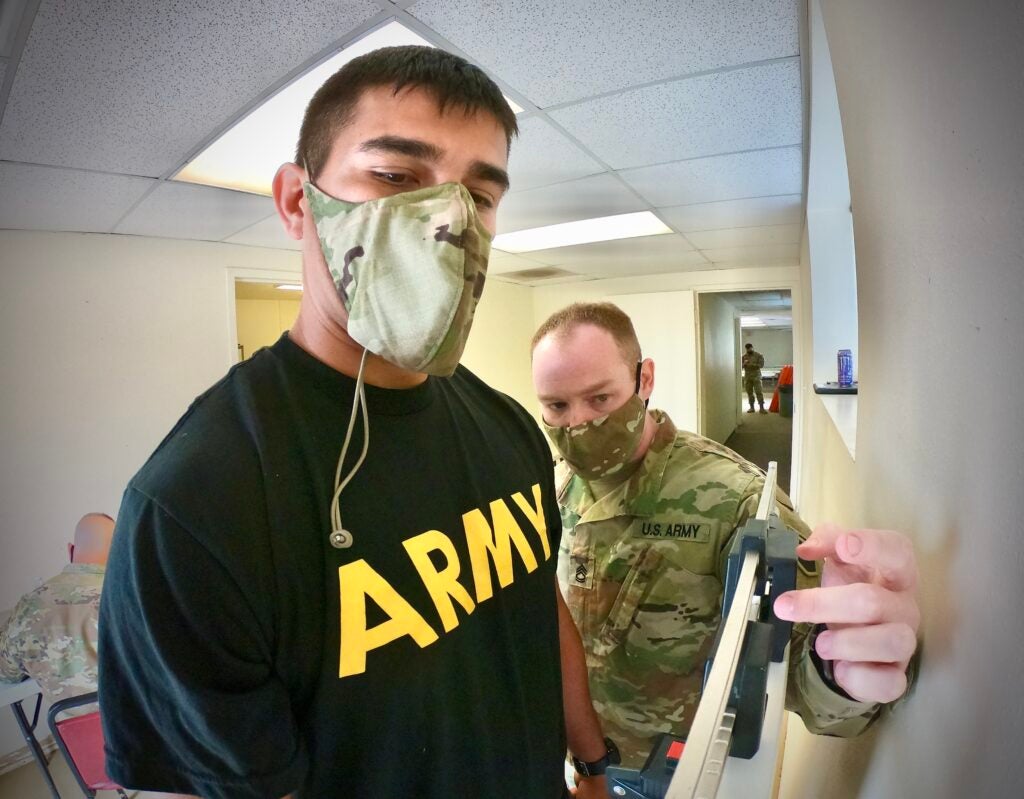
To meet those standards, service members often adopt unhealthy behaviors like starving themselves, working out excessively, taking diet pills or laxatives, or sitting in saunas for prolonged periods of time to drop weight quickly. An Army major who struggled with bulimia for years said taking drastic measures ahead of weigh-ins is “so common that nobody looks at it as weird,” and while “people will fully admit it’s happening … it’s never discussed as a danger.”
At the same time, a lack of data and training for leaders often leaves service members without the care they need and at risk of losing the job they’re desperately trying to keep.
Priscilla Rumph, a registered dietician at Joint Base Lewis-McChord in Washington, estimated that “a fair amount” of service members across the military deal with eating disorders, but said the lack of data is one of the hardest obstacles to overcome in addressing it. The Pentagon does not appear to keep that kind of data; when asked for it, a Pentagon spokesperson referred Task & Purpose to the individual services.
While the Army Public Health Center tracks medical diagnoses across the force, eating disorders are grouped into the broader category of mental and behavioral health conditions.
“We don’t have anything that gives us a really reliable answer,” Rumph said. “And that does bother all of us because then it’s hard to figure out how to best care for the situation.”
This article is based on interviews with 13 service members across the military — men and women, officers and enlisted. While some are being named with their permission, others are not in order to protect their personal health information. The interviews reveal the pervasiveness of a problem that can have lasting health impacts, and illustrate how normalized taking extreme measures has become for troops worried about meeting military requirements.
Dyal eventually sought out help and started recovering in October 2019, and in December was put on a temporary profile while she was receiving treatment, which meant she couldn’t deploy but she could still participate in PT and height and weight. Three months later, her therapist determined she was eating enough to be able to deploy if necessary, so she was taken off the profile. She graduated from her program and has continued improving and recovering.
But it hasn’t been an easy road, and it wasn’t until she was in that recovery process that she realized how common the problems she faced actually were, after hearing stories from other people about their struggles and the methods they’d turned to in order to “pass tape.”
“We are all suffering in silence,” she said.
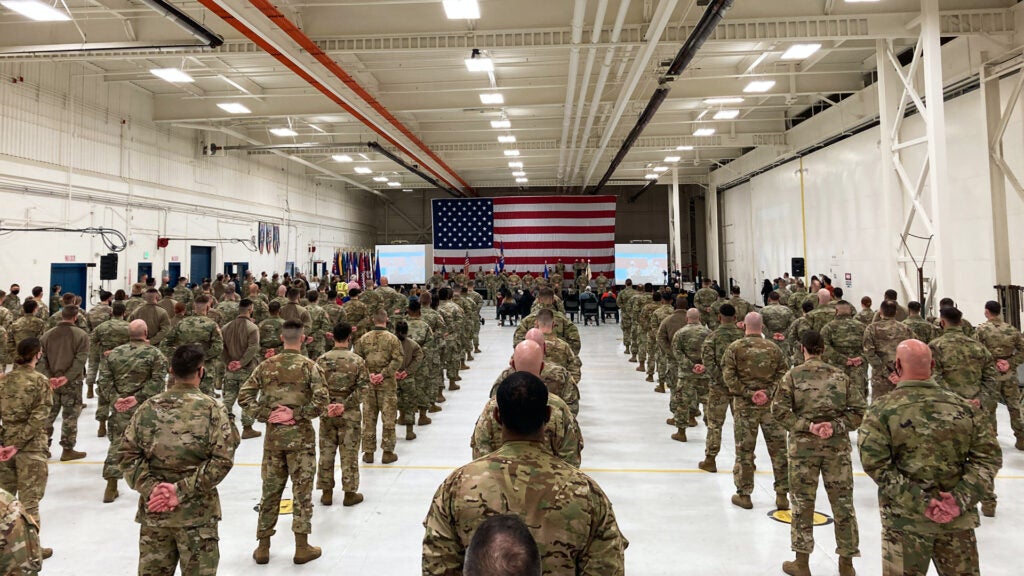
The ‘perfect storm’ for eating disorders in the military
In spite of the Pentagon’s lack of available data, advocacy groups have tried to fill in the gaps. The Eating Disorders Coalition, a group of organizations that promote awareness of eating disorders and initiatives to address them, said over 3,500 service members were diagnosed with an eating disorder between 2004 and 2013, citing a study from the Armed Forces Health Surveillance Center. The same study found that the rate of anorexia and bulimia were higher among Marines than the other services.
One study estimated almost half of U.S. service members reported at least one experience with weight stigma in the military in 2017, noting that stigma is “associated with harmful thoughts and behaviors, including diet pill and laxative use, purging, and overeating.”
Those behaviors fall into a category of “disordered eating.” While not the same as an eating disorder, disordered eating often lays the groundwork for someone developing one. The American Psychiatric Association outlines specific criteria that someone must meet to be diagnosed with an eating disorder like anorexia, bulimia, or binge-eating. Disordered eating, however, means engaging in “unhealthy and destructive eating behaviors” such as restrictive or compulsive eating, skipping meals, vomiting, or taking laxatives or diet pills, according to the National Eating Disorders Collaboration.
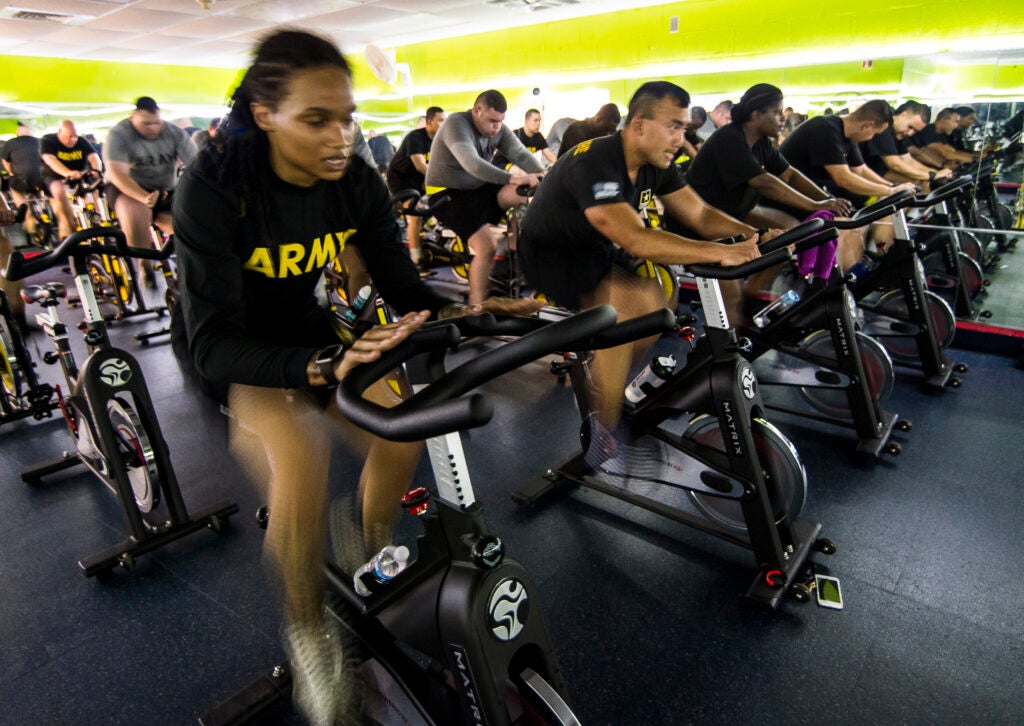
These behaviors can be situational, explained Dr. Jillian Lampert, the chief strategy officer of The Emily Program and Veritas Collaborative, two organizations which focus on eating disorder treatment — like when someone severely restricts their diet leading up to having their height and weight measured in the military. While eating disorders are believed to impact an estimated 10% of the population, Lampert said up to 50% of the population could be struggling with disordered eating.
“Disordered eating, people do a lot of weird things with their eating. And a lot of them are societally supported,” Lampert said. “Eating disorders, people are doing a lot of stuff that they are not showing anyone else, and that they really don’t want people to know about.”
According to Katrina Velasquez, the chief policy officer with the coalition, “all of the research that’s out there” shows eating disorders occur at a higher rate in the military than in the civilian population. And it’s not just the service members who are at risk; a 2007 study found that the rate of disordered eating among military dependents “was significantly higher” than the civilian population. The study found that military families “should be considered at high risk for disordered eating and eating disorders.”

Why? Velasquez says there is a “perfect storm” in the military, “where there are normal risk factors … for an eating disorder, but then there are additional triggering elements in the service.”
Those other triggers can be post-traumatic stress disorder from combat or military sexual trauma or being weighed in front of your peers and judged by how you look in a uniform. The military on its own does not cause eating disorders, Velasquez said, but for someone who may be genetically predisposed to an eating disorder, the military can be “the tipping point.”
“PTSD, military sexual trauma, and eating disorders go so, unfortunately well together,” Lampert said. “That’s why we believe we see a higher prevalence, and the diagnoses of eating disorders do seem to be increasing over the last five years or so.”
‘You’re holding your soldiers against a historically white standard’
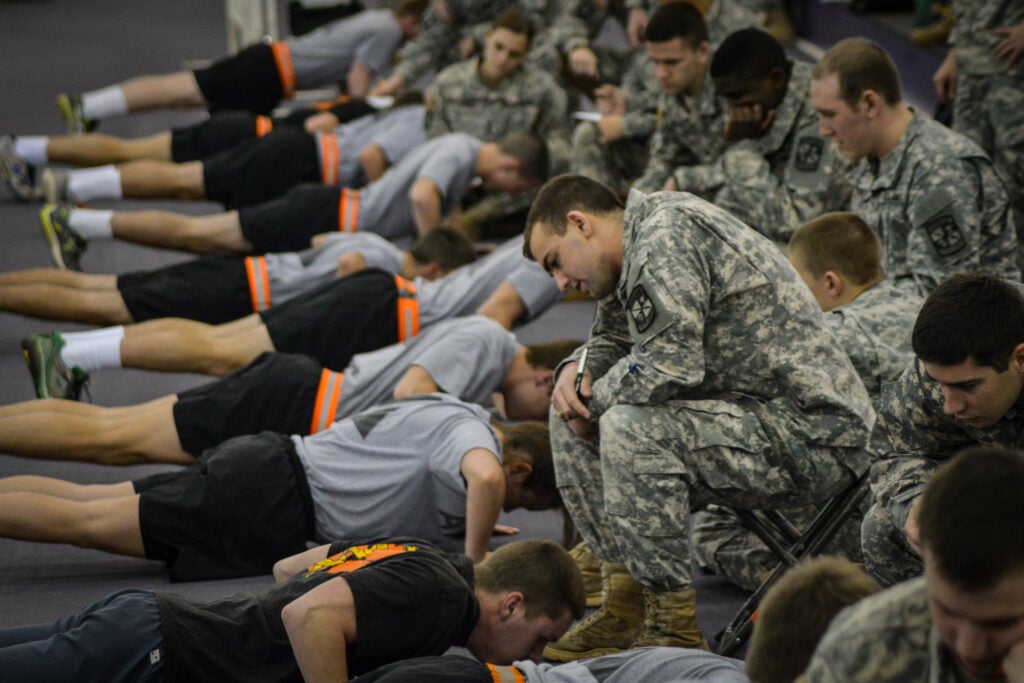
Through conversations with service members, it’s abundantly clear how pervasive disordered eating habits and eating disorders are in the military, and how early in their careers it can start.
But these habits don’t happen only among young service members, or just women. The problem extends to men and women, officers and enlisted, from new lieutenants to senior non-commissioned officers.
Army Capt. Jordan Holmlund was in ROTC when her mentor told her about the height and weight standards. Despite scoring well above the minimum standard during physical fitness tests, she wasn’t the weight the height and weight table told her she should be.
“I was seriously stressing about it, because ROTC and going into the National Guard at the time was something I really wanted to do, and it felt really stupid that this one thing – me being able to lose weight and keep it off — was going to be the thing that prevented me from actualizing this goal for myself,” Holmlund said. She began adopting “some very unhealthy” eating and fitness habits, which lasted for several semesters during college.
Then a rumor started in her ROTC battalion that just passing the standard wasn’t enough, and that anyone who got taped wouldn’t be able to go into the Army. She got harder on herself to avoid being taped altogether.
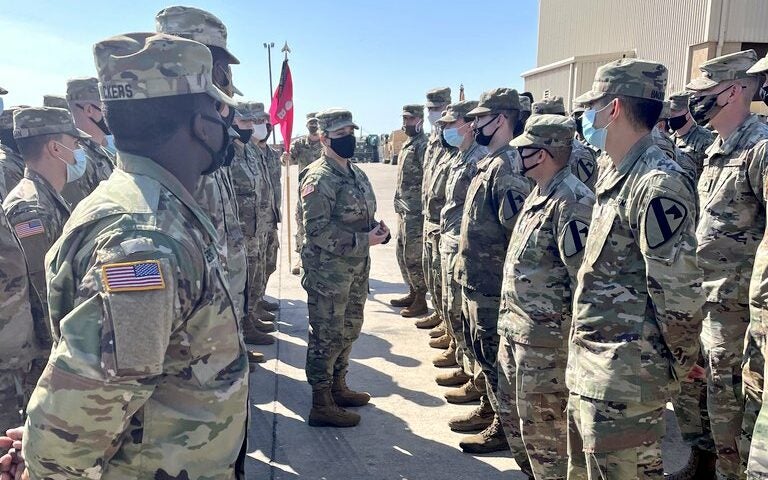
While getting taped is in Army regulations and not technically considered a punishment, there is an overwhelming negative stigma attached to it. Every service member interviewed by Task & Purpose described a certain amount of shame that went along with the practice, summed up by a first lieutenant at Schofield Barracks, Hawaii, who has heard soldiers say “all the fat kids need to go get taped.’”
To say only “fat” service members get taped simply isn’t true. The test equally punishes muscular men and women and service members whose body types don’t fit the required measurements. That problem was highlighted in March by The Army Mom Life, an advocacy group for mothers in the Army, in a slideshow that showed photos of women and their height and weight results. The photos show women who appear muscular and fit, yet surpass their table weight and in some cases barely meet their body fat percentage requirement.
As one soldier noted on her photo, the terror over being taped has made her rethink strength training, opting to reduce the weight she tries to squat since she would fail if she gained 1.5 inches on her gluteus muscles.
“I am perplexed by the idea that we are asking women to gain muscle, and then we use a tape that measures that muscle (gluteus) and punishes them for increasing the size of that muscle,” she said.
An Army sergeant first class at the Pentagon said that despite excelling on his fitness tests, he’s a naturally “stocky guy,” and the tape test has been the “only thing that’s ever threatened my career.” He had good reason to be worried. If someone fails to meet the height and weight requirements, and fails the tape test, they are put on the Army Body Composition Program. They’re given a maximum of six months to show “satisfactory progress” in losing weight, which the Army defines as three to eight pounds a month.
If a soldier fails to be within weight standards by six months — and it is not due to a medical condition — the soldier will be separated from the service. The Marine Corps has a similar policy, which says Marines who have not made “satisfactory progress” within those six months will be processed for administrative separation.
Aside from the threat of separation, there’s fear that news of a soldier failing height and weight could damage their reputation. The Army major remarked that “so much of people’s reputations are on these silly” tests.
“If word gets around then it’s going to professionally affect you,” he said. “Even if it’s something you can pass, it’s still just the fear of that possibility.”
The sergeant first class added that he experienced harassment while at the Drill Sergeant Academy because even though he passed tape, he looked bigger than some of the other soldiers who “all fit a very particular mold” and were “fairly skinny people.”
Other soldiers interviewed by Task & Purpose echoed that sentiment — saying the Army is holding onto an antiquated view of what a “good soldier” looks like, which they say often translates to a thin “runner’s body.” Even the Army’s own standards lean on a subjective appearance; the service’s body composition program regulations say that commanders “have the authority to direct a body fat assessment on any soldier that they determine does not present a soldierly appearance.”
“What the hell is a soldierly appearance?” Lampert said. “Where does the idea of a soldierly appearance come from … Is there a soldierly appearance handbook that people get trained in? So they know what to look for? I kind of doubt it.”
Matt Leonard, an Army spokesman, didn’t provide specifics when asked to define soldierly appearance.
“The determination of soldierly appearance is based on the requirement that soldiers are in compliance with body composition standards at all times,” he said. “The commander’s assessment of the soldier takes into consideration the proper and safe fit of uniforms and equipment.”

Lampert pointed out that a problem with that regulation is that if a commander is deciding that someone’s appearance “is not soldierly enough,” would a passing tape test “change my mind about how I judge you?”
“I don’t think so,” she said.
The Marine Corps has similar regulations regarding how Marines look. The Military Appearance Program, a commander’s program, focuses on personal appearance and can apply to things like personal hygiene, grooming, and uniform inspections as well as body fat percentage and body composition. Marines can be assigned to the program even if they meet height and weight standards.
“Such an assignment would normally be oriented towards weight redistribution, vice loss, and a Marine should be given an opportunity to correct deficiencies before being formally assigned to the MAP,” the regulation says. Marines have the ability to appeal their assignment to the program.
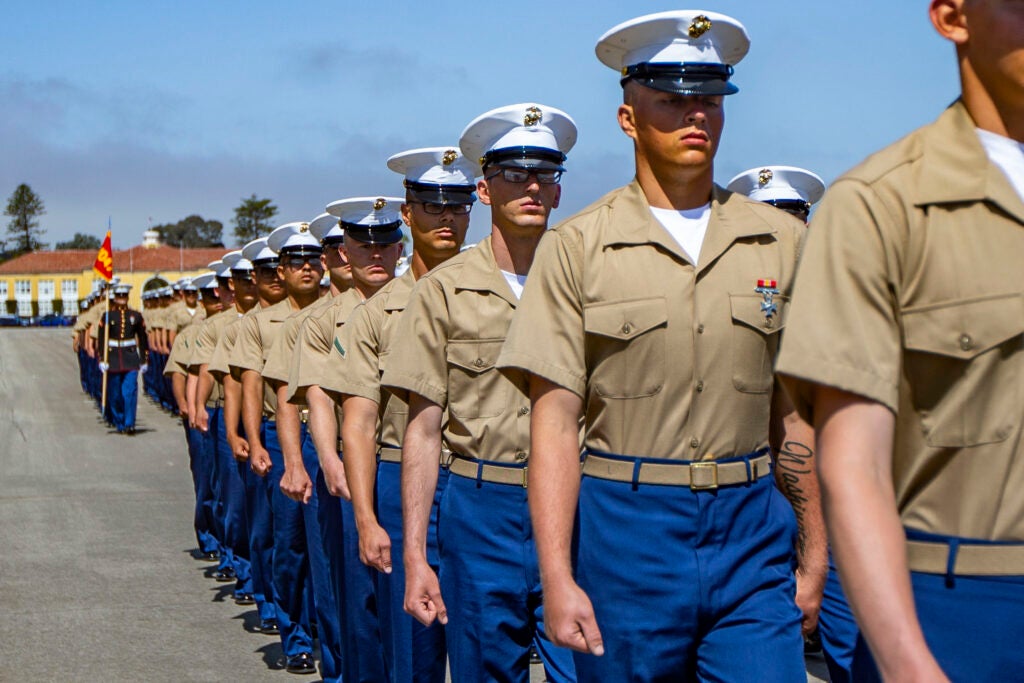
There’s also an argument that measuring someone’s health with BMI is not only outdated, but biased towards anyone who is not a white man. BMI was created 200 years ago by a Belgian mathematician “who sought to measure the height and weight of the ‘average’ man based on a sample of White, European men,” according to The Washington Post, despite modern research studies showing differences in body shapes along race and ethnic lines.
Lampert, noting the Pentagon’s renewed efforts to combat racism and increase diversity in the military, said the existing standards “are not representative across racial or ethnic identity at all.”
“So getting a more racially diverse … military, you don’t have standards that will reflect that in the standards,” she said. “You’re holding your soldiers against a historically white standard.”
Experts also say it’s not accurate. Velasquez, with the Eating Disorder Coalition, said BMI doesn’t take things like muscle mass, cardiac health, or metabolic health into consideration, which she and other experts agree are more important indicators of health. (For context, Dwayne “The Rock” Johnson was considered “obese” according to BMI standards, Men’s Health reported in 2015.)
“When we’re testing our service members on these standards, it’s kind of a one-size-fits-all that does not fit who we are as a nation anymore,” she said.
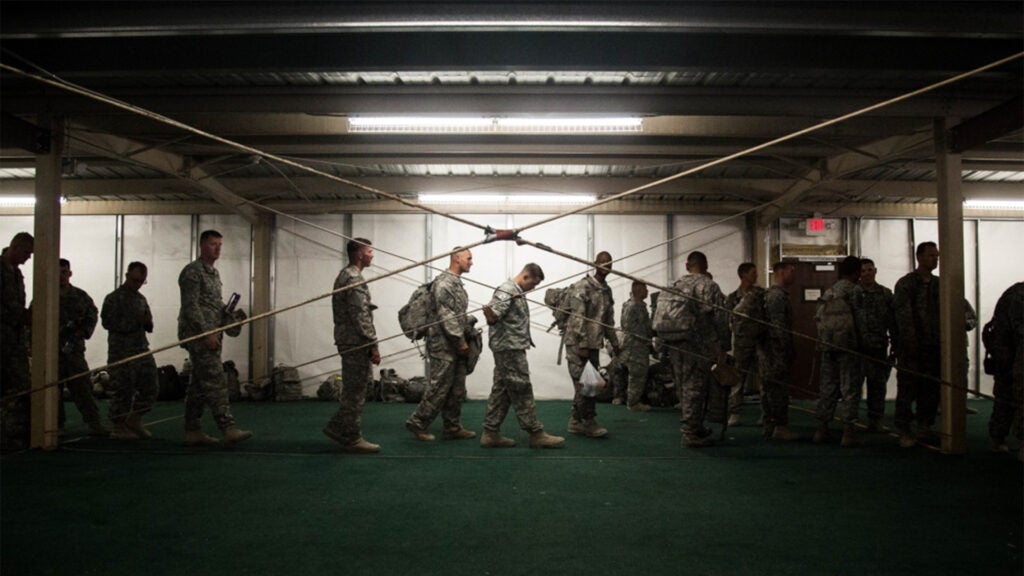
The tape test, which is conducted if a service member is over the regulation weight, is not much better. Lampert called it a “terrible” and “notoriously unreliable way to measure body fat.” Notably, a Military Times study of the tape test in 2013 found it was inaccurate in measuring body fat for 10 out of 10 active duty service members. Dr. Jordan Moon, the director of the Sports Science Center Research Institute, told Military Times the tape test “can vary by as much as 15%.”
“So, if your results show you’re 20% fat, that means there’s a 95% chance that you’re really somewhere between [five] and 35% fat,” Moon said.
One of the most common criticisms of height and weight standards is that they are often enforced differently depending on the unit, your leaders, or the person administering the test.
“You have leaders who are like, ‘Oh, you couldn’t meet your table weight, so you’re automatically a fat-ass,’” the sergeant first class said, adding that those kinds of comments have been prevalent for as long as he’s been in the Army, usually brushed off as a “joke” by the people making them.
When the Army major was preparing for Airborne School in Fort Benning, Georgia, he said the fear of getting taped was so great that he was training non-stop to avoid being even close to the limit. The thought of “letting people down” was too much, especially when the tape test can vary depending on who’s giving it to you.
“You go in there potentially about to end your career or start the downfall, and it’s all dependent on how this person is going to tape you,” the major said. “You could have different people tape you … how are they actually positioning the [the tape]? How tight are they squeezing the tape, some people say you’ve got to put your shoulders up, or are they making you stand normal? What are they letting you get away with? And there’s so many little tricks — I’ve seen people hit themselves in the neck thinking it will kind of cause it to swell up, or they’ll put their tongue at the top of their mouth … If you can get your neck bigger and your waist smaller, then you’re giving yourself every possible advantage.”
A Marine Corps staff sergeant and Army captain echoed that view, saying that it was not uncommon for men to focus on working out their necks in the days leading up to a weigh-in to help them pass tape.
The Air Force recently became the first military service to get rid of the tape test, though it’s still unclear what a new body composition measurement would look like; the Army and Marine Corps still swear by it. And in the Army’s case, soldiers say the existing standards and tape test aren’t accounting for the service’s new fitness test, which emphasizes building muscle for test events like the deadlift, standing power throw, and sprint-drag-carry.
“Fundamentally, the Army system for height and weight is broken,” said the captain, who is assigned to the 25th Infantry Division. “And the Army has a very toxic understanding of health, weight, and fitness.”
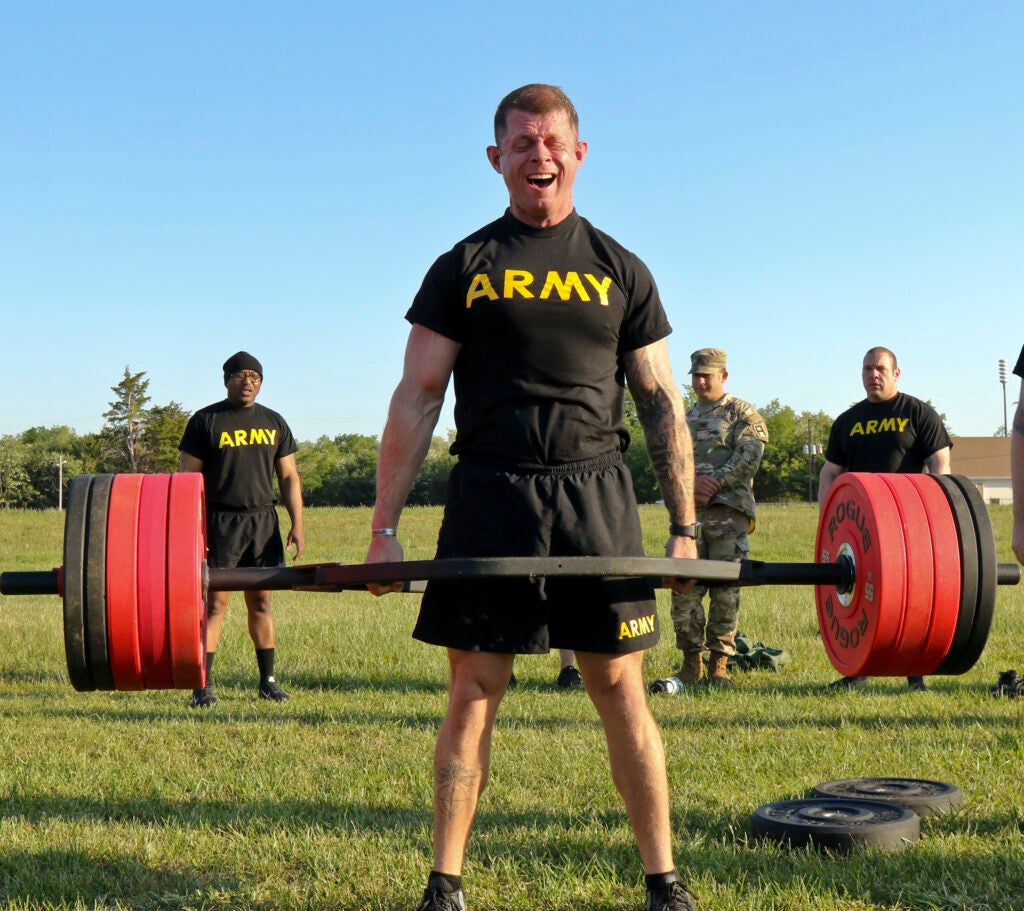
‘I’m just doing what I have to do to make it in the Army’
Ironically, the methods many are using to meet the military’s height and weight standards are hurting the physical fitness they’re supposed to support, and in the Army’s case, they know it.
Army regulations factor in the possibility that soldiers may be doing things to rapidly lose weight, and even details various “unsafe” tactics soldiers may be using to do so. In AR 600-9, the guidance for the Army Body Composition Program, the service urges commanders to allow a seven day period between taking the fitness test and taking soldiers’ height and weight because some “may attempt to lose weight quickly in the days leading up to a weigh-in.”
“This practice may result in the soldier being unable to perform his or her best on the [fitness test], if the two events are scheduled close together,” the regulations say.
Navy regulations also recognize “extreme body fat reducing methods,” saying “[d]ehydration methods are dangerous and sailors put themselves at risk during the [physical fitness assessment] if they have not reduced body fat through a proper diet and exercise program.”
That’s because disordered eating habits can have a negative effect on someone’s ability to exercise. Malnutrition and dehydration, for example, “lead to poor energy stores and muscle weakness,” according to a study from the National Eating Disorder Collaboration. Extreme dietary restriction “inevitably produces a deterioration in sport performance” by reducing muscle strength and aerobic performance, a 2013 study published in the National Library of Medicine said. Purging can have the same effect, while also increasing the risk of dehydration, which can lead to fatigue and muscle cramps.
The study concluded that “all indications are that eating disorders have a detrimental effect on both physical fitness and sport performance.”
Leonard said that despite the Army’s regulation, the service “discourages unhealthy behaviors such as attempting to lose weight quickly before height and weight screening.”
Capt. Holmlund knows how doing so can impact someone from experience. While she was restricting her diet, she said there was a significant difference in her ability to lift weights and do things like push-ups. Her overall score got worse because she felt “very, very lethargic.”
The same was true for the sergeant first class at the Drill Sergeant Academy, who began strictly limiting his diet to just a few specific things a day in an effort to drop weight, leaving him fatigued and unable to concentrate.
The first lieutenant at Schofield Barracks detailed a long struggle with eating disorders that began in college, but was exacerbated after she arrived at her first Army unit in 2018. Soon after she arrived, she failed the height and weight test, then the tape test. She began starving herself to help her pass.
“In college I never admitted to myself that it was an eating disorder,” she said. “I was like, I’m just doing what I have to do to make it in the Army.”
After passing the tape test on her second attempt, she went to the Army Wellness Center on post to use the Bod Pod, a device that helps measure body composition. While talking with a civilian employee at the center, she broke down in tears, sobbing. The employee recommended therapists who specialize in eating disorders.
“He reached out to me and I sat on it for a little while,” she said. “I kept telling myself I could just do this for four years, starve myself before weigh-ins, and still even when I’m not starving myself I’m still only ever thinking about how much I weigh and how much I’m eating and what everyone must think of me — they probably think I’m too fat — it’s all my mind could think about.”
She finally decided to call a therapist in November 2018.
Taking that first step to getting help is no small feat; there’s a fear among service members dealing with eating disorders that if they seek help, they’ll lose the career they’re working so hard to keep. It’s also difficult when leaders don’t seem to grasp how best to care for an eating disorder.
Chandler Rand was in her first few months as a Marine in 2016 when an eating disorder she thought she’d kicked as a teenager reappeared in a different form. She didn’t tell the Marines about her history with an eating disorder when she enlisted after college, reasoning that it was under control.
Rand said she scored excellent on her physical fitness test. She wanted to be a leader, and a good one at that, so she did the required PT, and then additional work-outs at night.
“Not disgracing the uniform is really what I was all about,” she said. “From the time I got up in the morning to the time I went to bed at night, I was just trying to put out 100%.”
Two months into her time being stationed in Twentynine Palms, California, Rand learned her father had a stroke. Then, just days later, she was weighed for the first time since boot camp, and she’d gained weight.
That was what brought her eating disorder back, in a different form than she experienced it as a teenager. She began not only limiting her eating but purging anything she did eat. It manifested itself further into panic attacks, she said, before her roommate convinced her to go talk to the chaplain. The chaplain pointed her to a psychiatrist who she credited as “a lifesaver.” Rand ultimately spent eight weeks of inpatient care in an eating disorder unit in a civilian facility before she was discharged from the Marine Corps.
Yet while she was seeking care, she said her Marine Corps leaders didn’t understand how to help her. They saw her behaviors as suicidal, but she wasn’t suicidal — she just needed help getting her eating disorder under control. What she needed, Rand said, was a “meal plan that keeps me accountable and some therapy.” Instead, she was screened to be admitted to a psychiatric hospital for suicidal ideation.
“After I was screened, they said I don’t need to be admitted to a psych ward, I just have an eating disorder,” Rand recalled. “Which is like, thank you, I’ve been telling you that.”
When asked what kind of training leaders receive on eating disorders, Maj. Jim Stenger, a Marine Corps spokesman, said leaders at all levels “are encouraged to constantly look out for each other’s health and safety,” and are “constantly reminded” of the resources available to Marines who “may be experiencing distress.”

“Caring for one’s fellow Marines could mean recognizing a problem, seeking out resources on their behalf, and then referring that person to a medical authority who can provide the appropriate care, for example,” Stenger said.
When Rand started inpatient care with the civilian facility, she said she felt like she “could breathe” again. She was being cared for by people who knew what her disorder was, and how it needed to be treated. Two other Marines were also being treated for eating disorders while she was there.
“I was like well this is silly, there’s 10 seats at the table for eating disorder treatment and so far three of us have been active duty Marines. Not to mention veterans who are also at the table,” she said. “That’s when I started realizing, this is a problem.”
Let the body composition studies commence
The Army and Marine Corps are currently studying their body composition programs. The Marine Corps is asking for volunteers until early 2022 in Quantico, Virginia to undergo three different body composition assessments, according to a press release, to help “ensure that Marine Corps policies and standards strike the right balance between health, performance, fitness, and military appearance.”
“All body fat estimation methods, including the Department of Defense mandated circumference measurement technique (‘tape’), have inherent margins of error,” Maj. Stenger said on Wednesday, adding that Marine Corps performance standards “are in a constant state of analysis, assessment, and modification if necessary to ensure that they best support the overall readiness of the force.”
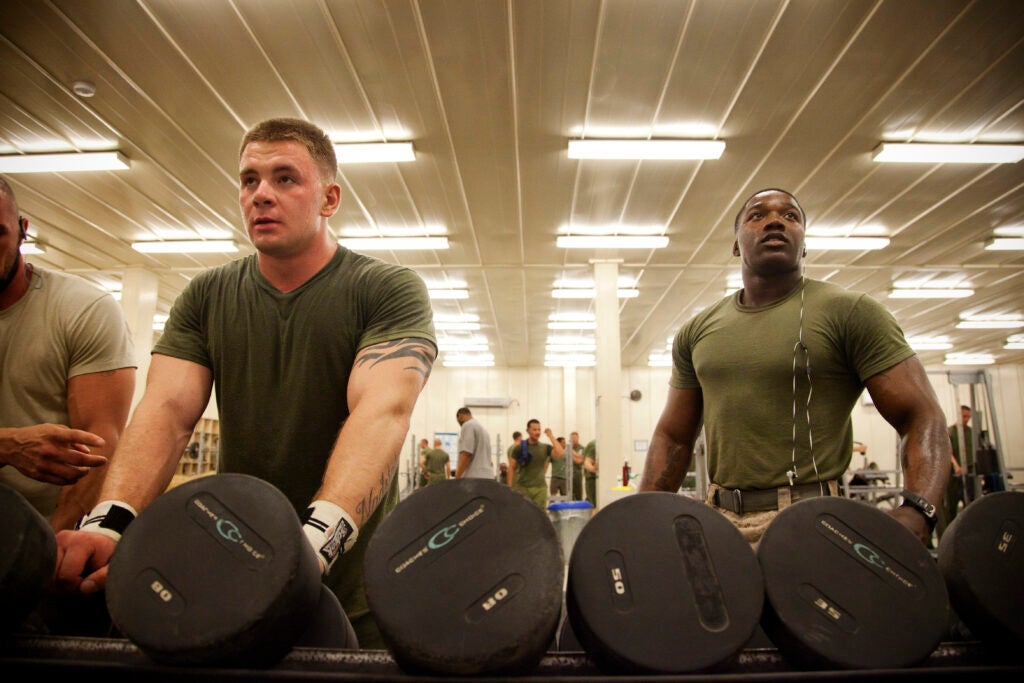
The Army will study the body compositions of over 2,000 soldiers at Fort Bragg, North Carolina, starting in October, according to an Army Times report. The intent is to gather information regarding the “taping of soldiers, body fat, and body changes, and considerations of the relationship between body fat and fitness levels.”
Leonard, the Army spokesman, said the study will “help the Army make informed decisions on future updates which could include changes to regulatory guidance, training and instructional programs, and to the mechanics of the Army Body Composition Program.” The findings will be presented to senior leaders by March 2022.
“The [Army Body Composition Program] study is part of the Army’s focus on holistic health and fitness to increase readiness and prevent injuries,” he said.
The Army’s holistic health and fitness initiative is exactly what it sounds like — the intent is to encourage soldiers to approach their health in a more comprehensive way by focusing on physical fitness, sleep, mental health, spiritual wellness, and nutrition, rather than an arbitrary height and weight standard or fitness test score.
The conversation about eating disorders in the military has even reached the halls of Congress: Sens. Thom Tillis (R-N.C.) and Jeanne Shaheen (D-N.H.) reintroduced legislation earlier this year that would expand access to eating disorder treatment for service members and their families.
The bill, called the Supporting Eating Disorders Recovery Through Vital Expansion (SERVE) Act, would make eating disorder treatment available to beneficiaries without age limitations under TRICARE, require the secretary of defense to “take steps to identity, treat, and rehabilitate” troops with eating disorders, and direct the Defense Department to “establish clinical practice guidelines” on eating disorder treatment.
“The prevalence of eating disorders among service members and their families is unacceptable,” Tillis said in a press release. “Congress must provide our men and women in uniform with the right tools to combat eating disorders, and I’m proud to reintroduce the SERVE Act with Senator Shaheen to improve access and care for those affected.”
Shaheen added in a statement that there is “a moral imperative to help service members be the healthiest and strongest version of themselves.”
“I’m committed to ensuring those in uniform have access to every resource available to heal, both physically and mentally – especially after all they’ve sacrificed in service of our nation.”
Currently, treatment access for eating disorders is “sort of lousy,” according to Lampert, who has assisted in writing the SERVE Act. There’s not a lot of eating disorder treatment available within the military, she said, which forces service members to seek treatment elsewhere. But that brings its own series of problems.
While working on the bill with Congress, Lampert said the Eating Disorder Coalition found that as many as half of the facilities who said they treated eating disorders and took TRICARE, the military health care program “didn’t actually treat people with eating disorders.” They were “regular mental health units or medical hospitals,” with no expertise in eating disorders, she said. Another issue she found was the reimbursement rate. Although some programs might “really want to care for military members,” Lampert said they can’t because of what they’re paid through TRICARE.
“They can’t make it work,” she said.
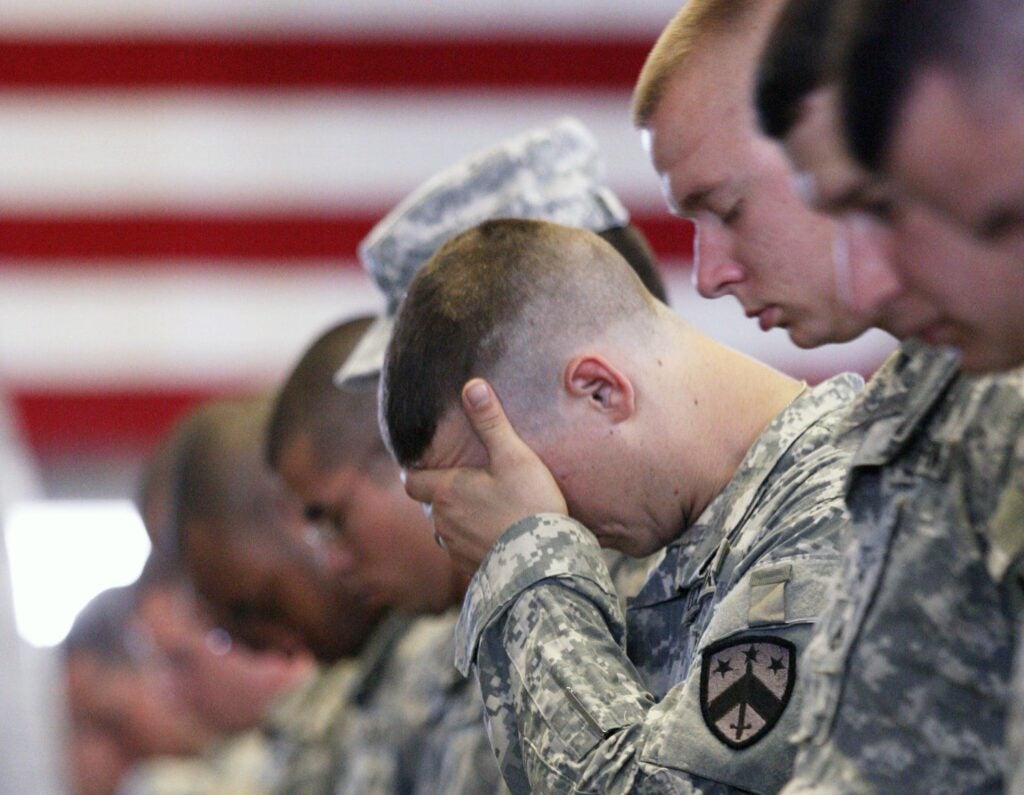
It’s not just the military
None of the service members who spoke with Task & Purpose advocated for no fitness and health standards, and Lampert argued there are plenty of ways to measure those things that are accurate and actually correlate to health instead of just looking the part.
Aside from fitness tests, the military should “look at health metrics that actually reflect health,” she said — such as blood pressure, blood sugar, muscular strength, and cardiovascular health. Those are health metrics “that actually have scientific evidence behind the correlation” to fitness, which she said can be addressed and improved through changes in diet or exercise or even stress levels.
Of course, that’s easier said than done, and it is unclear what kind of time or financial commitment would be required to measure those metrics rather than using weight and height tables as the basis. That’s typically the benefit of the tape test: it’s quick, cheap, and easy.
But a big key to improving service members’ overall health is changing how people see food and dieting; it’s one of the biggest challenges ahead of Army dieticians, who are tasked with helping soldiers who exceed the service’s regulation body fat standards. And while that may be well-intentioned, it often doesn’t translate into the kind of change the Army expects.
By the time many soldiers get to dieticians, they aren’t typically concerned with developing healthy behaviors; they’re concerned with losing the weight necessary to meet the standard and not losing their jobs, as one Army performance dietician previously told Task & Purpose.
For many, learning those healthy behaviors is difficult because it seems at odds with the way society as a whole approaches exercise and nutrition.
“Most of America has a disordered relationship with food,” Dyal said, explaining the benefit of what she calls “intuitive eating” — “treating your body with compassion and listening to your body” when it comes to exercise and nutrition. Dyal says there are no good foods or bad foods, for example, which is particularly difficult when discussing something like carbohydrates that have been characterized as “evil” instead of fuel for your body.
“Keto has made everybody want to not eat carbs,” she said. “Because carbs are evil and they make you fat, when actually what they do is help you run and lift weights.”
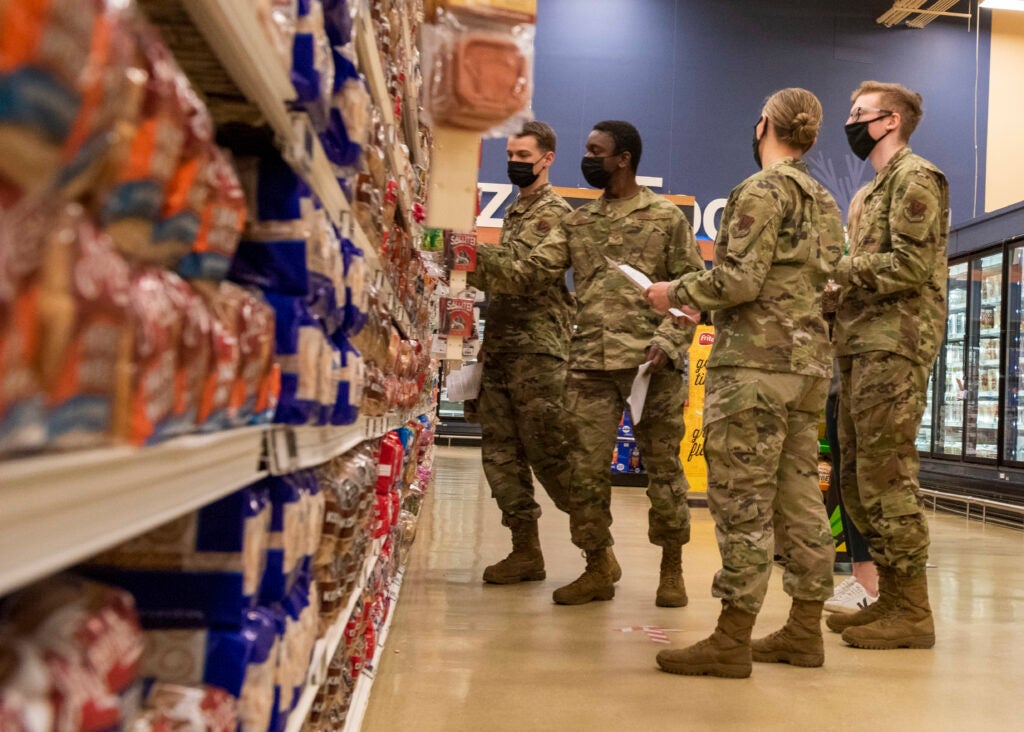
She’s seen the benefits of approaching food in a healthy way first-hand. It was hard at first but today, she’s exercising regularly and eating. Her workouts have improved because she’s actually eating the food she needed to fuel her body.
“I started eating a snack before and after exercises, and my workouts are better, and I don’t have nausea, and I don’t feel like I’m going to pass out, I don’t feel like I’m going to throw up,” she said. “And I don’t feel like crap for the first half of my day every time after a workout. I can actually go to work and be productive.”
In conversations with service members about disordered eating and fitness, a common theme emerged: many of them equated their self-worth with their ability to meet the standard before them. Because at the end of the day, they took being a soldier or a Marine seriously, and if that was the standard they were being held to, they’d do anything to meet it.
In fact, a big part of the first lieutenant’s eating disorder recovery was learning her self-worth “is not dependent on the Army, and it’s especially not dependent on Army standards for height and weight.”
And while that lieutenant is on the other side, far too many are still struggling.
“Leaders need to know,” an Army first sergeant said. “Even if their soldiers aren’t talking about it, there are soldiers in their formation who are harming themselves, mentally and physically, just to stay in the Army’s good graces.”
If you or someone you know is struggling with an eating disorder, it may feel overwhelming and isolating to process. You are not alone. Crisis Counselors are here to listen whenever you feel like you need someone to talk to. Text HOME to 741741 for free, 24/7 crisis counseling.
More great stories on Task & Purpose

